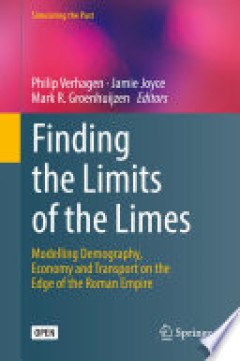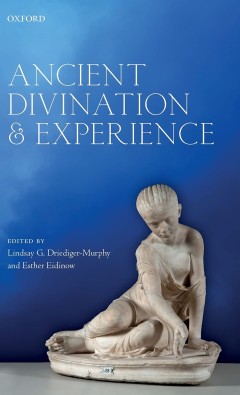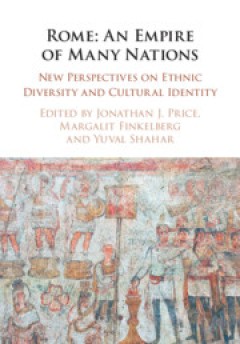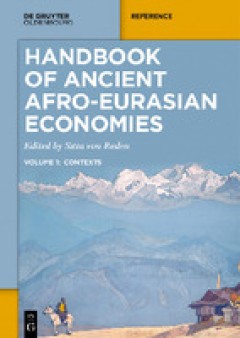Filter by

Finding the Limits of the Limes : Modelling Demography, Economy and Transport…
This open access book demonstrates the application of simulation modelling and network analysis techniques in the field of Roman studies. It summarizes and discusses the results of a 5-year research project carried out by the editors that aimed to apply spatial dynamical modelling to reconstruct and understand the socio-economic development of the Dutch part of the Roman frontier (limes) zone, …
- Edition
- -
- ISBN/ISSN
- 9783030045760
- Collation
- -
- Series Title
- -
- Call Number
- 936.4 ver

Ancient divination and experience
The introduction to this volume describes the contribution that it makes to scholarship on ancient divinatory practices. It analyses previous and current research, arguing that while this predominantly functionalist work reveals important socio-political dimensions of divination, it also runs the risk of obscuring from view the very people, ideologies, and experiences that scholars seek to unde…
- Edition
- -
- ISBN/ISSN
- 9780198844549
- Collation
- ix, 285p.
- Series Title
- -
- Call Number
- 203.2 ANC a

Rome: An Empire of Many Nations New Perspectives on Ethnic Diversity and Cul…
The center of gravity in Roman studies has shifted far from the upper echelons of government and administration in Rome or the Emperor's court to the provinces and the individual. The multi-disciplinary studies presented in this volume reflect the turn in Roman history to the identities of ethnic groups and even single individuals who lived in Rome's vast multinational empire. The purpose is le…
- Edition
- -
- ISBN/ISSN
- 9781009256193
- Collation
- xii, 428 p ; ill
- Series Title
- -
- Call Number
- 937.06 ROM J

Handbook of ancient Afro-Eurasian economies : volume 1,. contexts
The notion of the “Silk Road” that the German geographer Ferdinand von Richthofen invented in the 19th century has lost attraction to scholars in light of large amounts of new evidence and new approaches. The handbook suggests new conceptual and methodological tools for researching ancient economic exchange in a global perspective with a strong focus on recent debates on the nature of pre-m…
- Edition
- -
- ISBN/ISSN
- 9783110607741
- Collation
- XII, 758 p.
- Series Title
- -
- Call Number
- 330.93 RED h
 Computer Science, Information & General Works
Computer Science, Information & General Works  Philosophy & Psychology
Philosophy & Psychology  Religion
Religion  Social Sciences
Social Sciences  Language
Language  Pure Science
Pure Science  Applied Sciences
Applied Sciences  Art & Recreation
Art & Recreation  Literature
Literature  History & Geography
History & Geography